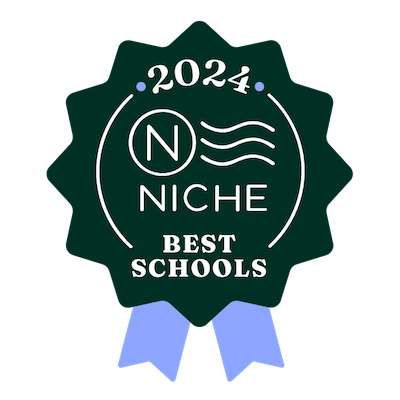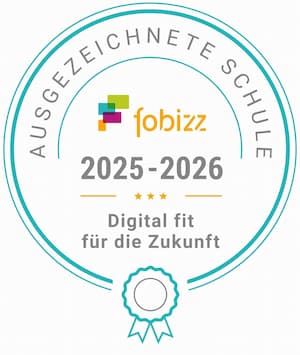Counselor of grades 5-12
The main objective of the counseling program is to contribute to the positive academic and social development of each student. Our counselor, Ms. Klara Fabina works with grades 5-12 and offers individual and group counseling, classroom guidance, student observation, responsive counseling, college counseling, referrals, and parent and teacher support . She is also the test coordinator for the PSAT, SAT, and AP Exam. The counselor is also involved in the coordination and planning of school programs that deal with drug awareness and assertiveness training for students, as well as peer mediation and crisis intervention.
Ms. Fabina has been working at the German International School Washington D.C. since the year 2000. She earned her Abitur at the GISW and received both her Bachelor of Arts and her Master of Education in School Counseling Degrees from the University of Maryland, College Park.
Ms. Fabina is in her office Monday-Friday from 8:00 am to 3:00 pm. Appointments can be made over the phone (301.767.3805) or via email at counselor@giswashington.org.
> ONLINE COLLEGE FAIR: www.collegefairsonline.com
Guidance Resources
Please explore the following topics by clicking on each.
Crisis hotlines and resources (apa.org)
The Trevor Project | For Young LGBTQ Lives
Community Resources
EveryMind
301-424-0656
Crisis prevention and intervention services.
Montgomery County Crisis Center
240-777-4000 or walk-in
24/7 immediate response to mental health and situational crises.
Montgomery County Access to Behavioral Health Services
240-777-1770 / 240-777-4710 or walk-in
Assistance with obtaining appropriate outpatient mental health or substance use services for individuals eligible through the public mental health system.
Child and Adolescent Behavioral Health Services
240-777-1432
Outpatient mental health services for children, adolescents, and their families.
Screening and Assessment Services for Children and Adolescents
240-777-1430
Substance use assessment and treatment referrals.
Sheppard Pratt Care and Services
301-840-2000
Community mental health services and programs for families.
ChildLink
Information and referral service for children birth to 5 years old and their families.
2-1-1 Maryland
24/7 access to over 5,000 organizations and programs across the state that provide community health and human services.
Montgomery County BetheOne
Information on suicide and substance use prevention for teens and their families.
National Resources
National Suicide Prevention Lifeline
Substance Abuse and Mental Health Services Administration
The Society for the Prevention of Teen Suicide
Depression and Bipolar Support Alliance
Children’s Mental Health Matters! Family Resource Kit (in english and spanish)
Mrs. Fabina, the counselor for the upper level school, and Ms. Schweitzer, the counselor for the elementary school have collaborated to provide information on a variety of counseling related topics. We hope you find the information interesting and useful. Happy reading!
> Counseling To Go: Rude, Mean, Bullying… What is the difference?
Dear Parents:
As you may have heard already, the German School Washington, D.C requires social service hours from our students in grades 8-12. However, unlike the public schools who require 75 hours of community service, we require a total of 40 hours. Students will be earning these hours by taking part in activities within the curriculum, the school or the community.
As a general rule, all service learning must be performed with a nonprofit tax exempt organization. Assisted-living facilities and nursing homes are the only exception to the nonprofit rule. (List of organizations that offer community service-learning hours: www.montgomeryschoolsmd.org/departments/ssl/ )
One service-learning hour is awarded for every hour of service outside of the instructional day. A maximum of 8 hours may be earned in a 24-hour period. All service-learning activities must be secular in nature, occur in a public place and be supervised by a nonprofit organization representative. Parents or relatives cannot serve as supervisors for their child or relative.
We would like to give you an overview of the process of earning community service hours.
Step 1:
Students will be able to obtain the student service learning activity form here or by stopping by Ms. Fabina's office and picking up a copy in person.
Step 2:
The student chooses one or more activities either in school or in the community. If there are any questions as to whether or not an activity that a student wants to participate in is approved, please contact me prior to beginning the activity.
Step 3:
The student completes the 10 hour requirement and fills out the activity form. The activity supervisor fills in the hours of service and signs the form.
Step 4:
The student brings Mrs. Fabina the completed and signed form and the hours are entered into the database.
For Grade 12 Students only: To be eligible for graduation, each student must hand in their signed forms no later than June 1.
Student may also complete their SSL (Student Service Learning) hours during the summer. All hours must be handed in to Mrs.Fabina by the last Friday in September.
Students may also choose to fulfill their entire service learning requirement at one time. As an example: if a 9th grade student completes 40 hours of community service, the requirement has been met and no further hours are necessary.
Volunteering is such an important and worthwhile experience. As the Montgomery County Public Schools home page puts it: “Quality service learning provides the student with knowledge, skills, attitudes, and career exploration opportunities that lead to effective citizenship in an increasingly diverse and interconnected world.” If you have any questions regarding the student service learning program, please contact Mrs. Fabina and we will be happy to assist you.
Even after a terrible tragedy, healing is possible with the right support and resources. If you or your loved one is experiencing emotional difficulties or any type of distress, help is available. Mental Health America's (MHA) free, confidential 24/7 HOTLINE (301-738-2255) provides emotional support, information and resources, including suicide prevention and crisis intervention. MHA also offers support through a Text Line Monday through Thursday from 4pm-9pm via 301-738-2255 and chat services through http://www.CrisisChat.org.









